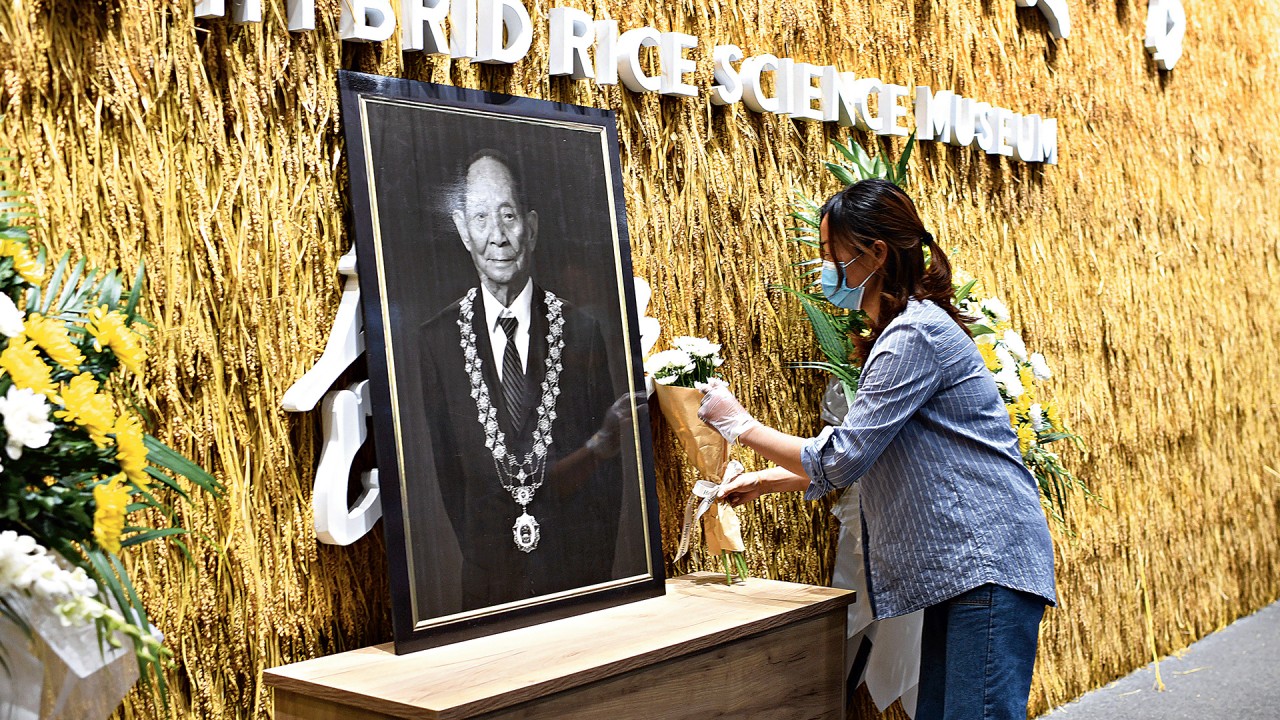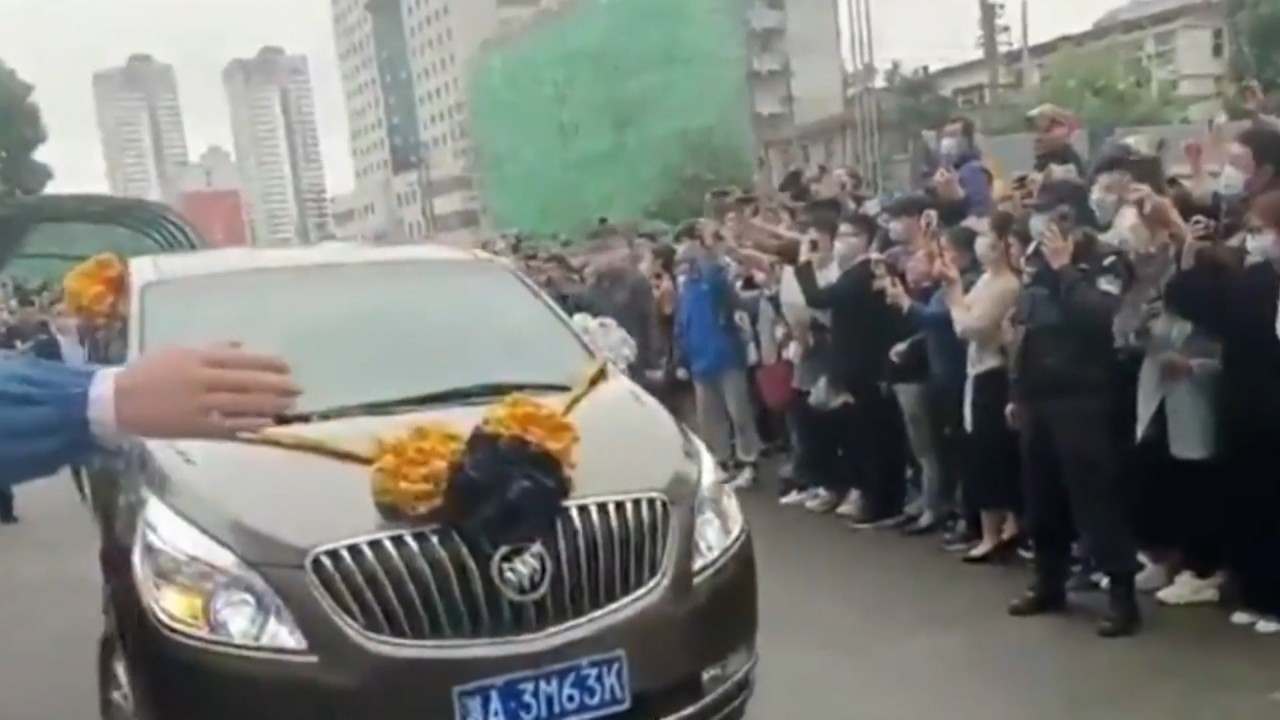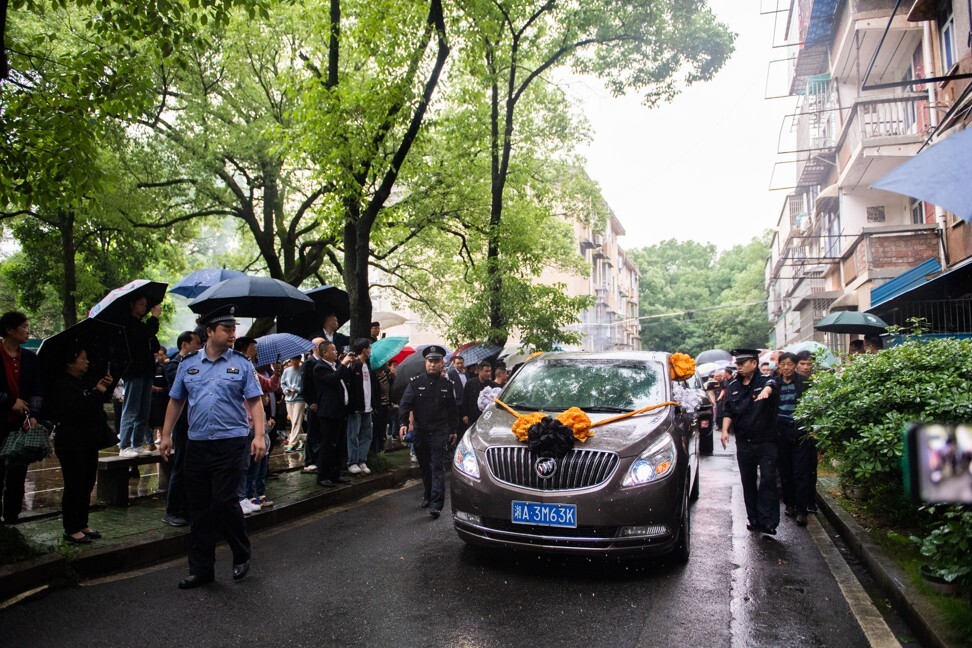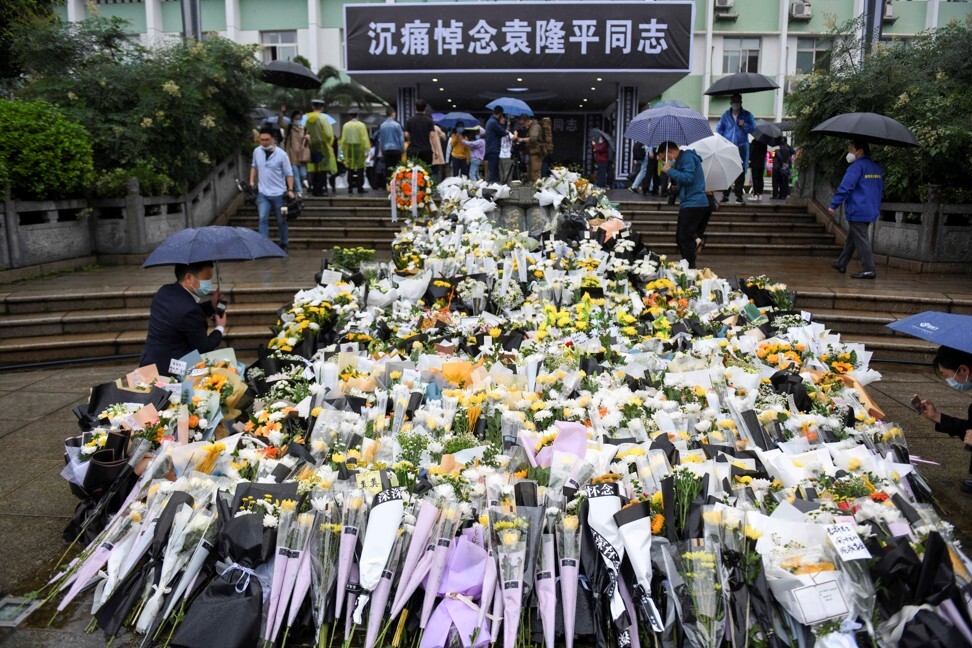
Tributes flow for Yuan Longping, who helped save China from hunger
- UN praises Yuan for contributions to food security and the fight against poverty
- Police disperse well-wishers at Changsha funeral home and investigate allegedly disrespectful remarks about the scientist online
Crowds also gathered in the rain outside Changsha’s China National Hybrid Rice Research and Development Centre where the scientist worked, state broadcaster CCTV reported.
People’s Daily posted footage of well-wishers lining the streets as the hearse carrying Yuan drove by on Saturday with many young people calling out to “Grandpa Yuan”.
President Xi Jinping sent his condolences to Yuan’s family through the Communist Party branch in Hunan province, lauding Yuan’s contribution to China’s food security, state news agency Xinhua reported on Sunday.

01:34
Yuan Longping’s funeral draws large crowds as China mourns ‘father of hybrid rice’
Xinhua also ran a rare commentary on Saturday suggesting the country fly the national flag at half-mast to honour the scientist.
The online Chinese world, including major news websites and social media platforms from Weibo to WeChat, were filled with tributes to Yuan in a rare spontaneous nationwide expression of sorrow – a phenomenon usually only seen with the death of a political heavyweight such as former premier Zhou Enlai and former paramount leader Deng Xiaoping.
The United Nations praised Yuan for helping improve food security and eliminating poverty in China.
Qu Dongyu, the first Chinese national to head the UN’s Food and Agriculture Organization, also offered his condolences.
“Deeply saddened by the death of Prof Yuan Longping, my dear master. He devoted his life to the research of hybrid rice, helping billions achieve food security,” Qu tweeted.
In Hong Kong, the State Key Laboratory of Agrobiotechnology at Chinese University thanked Yuan for his support.
“Since the [lab] was established in 2008, Mr Yuan has served as a member of our academic committee and offered valuable advice. We are deeply honoured by his great support and encouragement,” it said on Sunday. “[We] remember Mr Yuan said that rice is his favourite. It is a must-have with all delicacies because this is his pursuit and he will not forget his roots.”

01:23
Large crowds in China bid farewell to Yuan Longping, father of hybrid rice, dead at 90
The official Hunan Daily newspaper reported that Yuan died of multiple organ failure in a hospital in Changsha in central Hunan province just after 1pm on Saturday.
In a report on Rednet – a news portal affiliated with the Hunan government – Yuan’s doctor was quoted as saying the researcher had been in hospital in Changsha since April 7 after falling in a rice field while working in one of his projects on the island province of Hainan on March 10.
Police in the northern municipality of Tianjin said they were investigating a 38-year-old man who allegedly posted disrespectful remarks online about Yuan’s death.
In Beijing, police on Saturday also detained a person who “sent multiple insulting remarks in a WeChat group”.
Yuan was known for developing the first hybrid rice varieties in the 1970s and is regarded as a national hero for boosting grain harvests and helping to feed the world’s most populous country.
State media credited Yuan’s research with enabling the country to “feed 70 million more people”.
Born in Beijing in September 1930, Yuan began his career as an agrarian researcher a few years before the Great Leap Forward (1958-60).
He often said in interviews that he was driven to increase rice output in China because of the hunger he had witnessed. “My lifetime pursuit is to ensure all people stay away from hunger,” he was quoted by mainland media as saying.
In the decades that followed, Yuan was associated with some of the most important breakthroughs in his field.
As early as 1964, Yuan theorised that a male-sterile grain could be crossed with other plants to boost yields, but it was not until 1973 that he cultivated the first hybrid rice thanks to the discovery of a wild rice species that made the breakthrough possible.
Mass cultivation of the crop began in 1976 and proved key to China being able to feed one-fifth of the world’s population with just 9 per cent of its arable land. In his later years, he was also involved in research in China and Dubai into growing crops in diluted seawater.
In 2001, Yuan collaborated with researchers at Chinese University and in the United States on an genetic enhancement programme of Chinese hybrid rice to further improve its grain yield, quality and stress resistance.
Yuan is also remembered as a figure of science and conscience amid the political upheaval of the Cultural Revolution. In earlier interviews with Chinese state media, Yuan said he was not a Communist Party member, and he described how millions of Chinese people died in the Great Famine in early 1960s.
Yuan received the highest scientist honour from the Chinese government in 2000.



